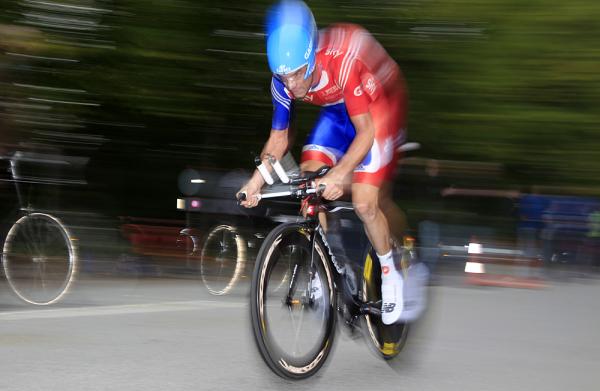USADA welcomes CAS Olympic ruling
Tygart says it does not undermine the IOC's stance on anti-doping

US Anti-Doping Agency has welcomed a CAS ruling allowing athletes who have served a suspension for doping to participate in the Olympic Games, on the basis that the rules now fall in line with the WADA code. The ruling contradicts the IOC's stance as well as that of the British Olympic Association (BOA), who previously banned all sanctioned athletes from ever competing in the Games.
Travis Tygart, CEO of the US Anti-Doping Agency, spoke at a recent anti-doping symposium in London, organised by the Times. With the CAS ruling just days away he stated that the event would be a pivotal moment in the fight against doping, and one would stretch the robustness of the WADA anti-doping code.
"I think this is the principled outcome for signatories to the WADA Code, so obviously we support it from that perspective," Tygart said after the CAS ruling.
"The ruling does not undermine the IOC's strong stance on anti-doping and their commitment to protecting clean athletes. They took the courageous step in the late 90s to externalize and make independent their overall program, and this CAS ruling is further confirmation that having an independent program and implementing the WADA Code helps create harmonization across the world, and ensures that all athletes in all sports are treated fairly and equally."
The CAS ruling now means that the IOC must lobby WADA in order to push towards a ban an outright ban of sanctioned athletes. The IOC had been pushing for a two-Olympiad ban, with no review hearing if athletes received a doping violation six months before the London Olympic Games.
While Tygart would prefer an outright Olympic ban for the most serious doping violations, he stressed that unity between WADA and it's national federations was paramount.
"In egregious doping cases, we support athletes and athlete support personnel being prohibited from participating in any future Olympic Games, but that is a rule that would need to be implemented through the agreed upon process of the WADA Code review, so that it's unified across the world and so that each case has an individualized review to make sure it's the appropriate sanction."
The latest race content, interviews, features, reviews and expert buying guides, direct to your inbox!
Tygart also noted that the IOC's position had weakened the fight against doping in an indirect manner. According to the USADA head the threat of a permanent from Olympic competition had stifled athletes from coming forward to either confess or implicate others. With testing always in a dog fight against the sophisticated cheat, information has and will be one of the most important tools used by the likes of USADA.
"There have been unintended consequences of the IOC rule. Firstly it undercuts the applicable sanctions put in place so you see panels from around the world giving athletes less than what they otherwise should get because they're intentional reducing them to get under the IOC rule.
"Secondly there has been a chilling effect on those willing to come forward, whistleblowers, those to who provide information on those higher up in the chain and involved in distribution. I think at the end of the day there has have been unintended consequences to the rule that nobody could have foreseen. The rule has actually watered down and harmed the anti-doping effort."
We know that some athletes in the most sophisticated doping programs lie in an attempt to avoid consequences, but for other athletes that may have come forward and acknowledged their mistakes, this automatic ban, discouraged them from being honest. The ban had a chilling effect and stopped those people from coming forward when they otherwise might have.
Daniel Benson was the Editor in Chief at Cyclingnews.com between 2008 and 2022. Based in the UK, he joined the Cyclingnews team in 2008 as the site's first UK-based Managing Editor. In that time, he reported on over a dozen editions of the Tour de France, several World Championships, the Tour Down Under, Spring Classics, and the London 2012 Olympic Games. With the help of the excellent editorial team, he ran the coverage on Cyclingnews and has interviewed leading figures in the sport including UCI Presidents and Tour de France winners.
